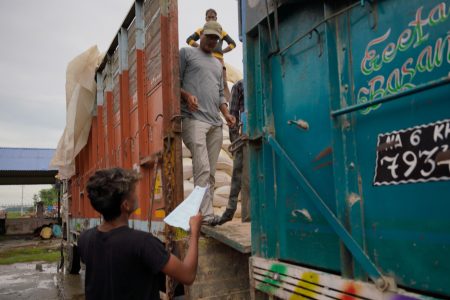MANILA — The Asian Development Bank (ADB) today approved a $300 million loan to improve transport connectivity of the Kakarbhitta–Laukahi road in Nepal to international trade routes, particularly to India and Bangladesh.
“The project road is along the East–West Highway which forms part of the South Asia Subregional Economic Cooperation corridor,” said ADB Transport Specialist for South Asia Sin Wai Chong. “Together with other regional cooperation initiatives under the SASEC framework, better infrastructure, improved connectivity, and safe road networks will boost border trade and logistics and improve the lives of rural communities.”
At least 95 kilometers (km) of road from Kakarbhitta to Laukahi will be upgraded from a two-lane to a four-lane dual roadway. It will incorporate climate- and disaster-resilient design features such as higher thermal resistant pavements and bridges with stringent flood-proofing requirement. The project will improve road safety through features such as junctions with traffic signals, footpaths with streetlights and tactile paving surface, overhead pedestrian crossings, road crossings with raised platform, and bus stops equipped with lighting system.
The project will build the capacity of the Department of Roads in climate- and disaster-resilient strategies, road asset management, road safety, and project management and implementation. Community awareness campaigns on road safety, health and hygiene, and human trafficking will also be conducted. This will be complemented with capacity building programs for women and disadvantaged groups to improve their mobility and access to services.
ADB will provide an additional $750,000 technical assistance grant from its Technical Assistance Special Fund to develop climate change mitigation and adaptation guidelines for road projects, bidding documents, performance indicators, and a user handbook on long-term performance-based maintenance.
ADB is committed to achieving a prosperous, inclusive, resilient, and sustainable Asia and the Pacific, while sustaining its efforts to eradicate extreme poverty. Established in 1966, it is owned by 68 members—49 from the region.

